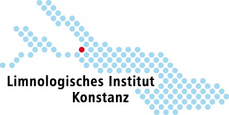CHARM: CHAllenges of Reservoir Management – Meeting Environmental and Social Requirements → WP4:
Greenhouse gases and carbon storage (F. Peeters and H. Hofmann)
Reservoirs are major constructions by mankind that serve highly important purposes such as water and energy supply, flood protection, navigable waterways and, ultimately, recreational activities and tourism. In the near future, reservoirs will gain even more significance due to the expected demographic and climate changes, ongoing globalization and the shift towards green energy such as hydropower. At the same time, these dam constructions often provoke serious socioeconomic tensions, as they come with extensive changes in landscape, disruption of the river continuum and ecological impairments of the adjacent habitats. Moreover, reservoirs accumulate large sediment depositions that are often associated with pollutants, organic material and nutrients, driving eutrophication within the retained lake (e.g. toxic phytoplankton blooms, greenhouse gas production), while downstream regions have inadequate provisions of sediments. As reservoirs age, their functioning is increasingly at stake since deposited sediments reduce their storage capacity and potentially block intake structures and bottom outlets. While there is little flexibility to vary dam construction itself, improving management practices seems the way forward to address all of the aforementioned problems to ensure both, economic operation and ecological resilience.
This proposal suggests the joint work on the increasingly pivotal issues concerning reservoir functioning and operation as there are “Sedimentation” (work package WP1), “Microbial Biostabilisation” (WP2), “Harmful Cyanobacterial Blooms” (WP3), “Greenhouse Gases (GHG) and Carbon Storage” (WP4) as well as “Societal Implications and Conflicts” (WP5). The topics of the different WPs are highly interlaced. This newly founded consortium, comprised of expert partners from Stuttgart, Konstanz und Freiburg crossing disciplinary boundaries of engineering, natural and social science, complementing sedimentology, biology, physics, chemistry, history and conflict analysis, offers a unique holistic view on reservoirs which is fundamental for identifying the critical parameters that need to be addressed urgently in current and future dam management.
Funding: “Researcher Networks” within the Framework of the Water Research Funding Program of the Province of Baden-Württemberg – 2016/01/01 to 2020/12/31

